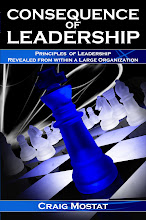
I was in grade 5, and one of the school bullies, out of the blue, challenged me to a fight after school for no apparent reason. I did what any young boy would do to save face – I said, "ok – what time." The arrangements were made for later that day and we walked away. "Stupid, stupid, what have you done?" "You can't win this fight – why would you agree to it?" screamed the voice in my head. I couldn't win. I was among the smallest in stature in the school and he was three times my size. Of course that is why he picked me. That is what disempowered scared people (a.k.a. bullies) do – they pick on and demean others in order to elevate themselves. The size mismatch guarantees success in their goal.
I had to get out of this – there is no way that I am going to let some big guy with a low self-esteem beat on me. Not showing up is certainly an option, but it makes me look bad and the problem will never go away – we still go to the same school – he is going to get me eventually.
It is has been said, "Necessity is the mother of all invention." I had an idea. I went to the office and asked to speak to the principle. I explained my problem to him from my grade 5 level of understanding. I didn't have work very hard at explaining my idea – he caught on right away and began to reason aloud, "What if I called both of you to the office, and explained to you that I found out about your planned fight after school today?" He paused and then continued, "and what if I was to say that if you went ahead with the fight, there would be big trouble, the strap, suspension or even expulsion – do you think that would end it?" Of course, I agreed with his plan and went back to class.
Within the hour, we were both called to the office. I remember playing the role as we walked to the office, "What do you think this is about?" I asked. "I have no idea," the bully responds and finishes with, "Do you think they know about the fight?"
The principle went through the scenario exactly as planned – even pulled out his strap during the conversation for effect. The shock and awe on the way back from the office included questions and statements by both of us such as, "who do you think told," and "I have no idea." The fight never transpired and the issue was dead.
Whats the point?
The bullies (problems) of life and business will always come at us and you can't always solve them on your own. Sometimes you will need help. In fact, you are almost always better off to collaborate with others when dealing with problems. We often get ourselves into problems and do not have the ability to see our way out of them. There is always more than one solution to a problem, leaning on others helps us to see them.
Don't try to be a hero solving all your own problems – reach out to others. That is why we call it a team.
A final word of advice: Try not to let your pride get in the way of logic when someone or something, three times your size, challenges you to a battle.
To my bully friend, Darcy B. – now you know the rest of the story.
Image by: Mandreww

Bullies








